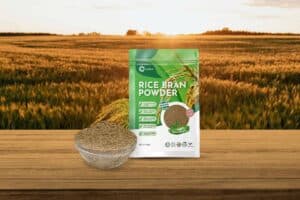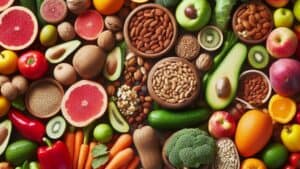In today’s health-conscious era, the quest for plant-based protein alternatives is on the rise, driven by fitness enthusiasts and those with dietary preferences. Organic pea protein has emerged as a nutritional powerhouse, offering a sustainable and plant-based protein source that’s capturing the attention of health-conscious individuals. This article delves into the intriguing world of organic pea protein, exploring its remarkable attributes, adaptability, and why it’s becoming a top choice in the health and wellness realm.
- Understanding Organic Pea Protein
Organic pea protein is derived from yellow peas, scientifically known as Pisum sativum. It’s a high-quality plant-based protein renowned for not only its rich essential amino acid profile but also its array of additional nutrients. The production process of organic pea protein is gentle, minimizing chemical exposure, which results in a clean and environmentally friendly protein source.
- The Nutritional Profile of Organic Pea Protein
Organic pea protein boasts an impressive nutritional profile. Let’s delve into its key components:
2.1 Protein: Organic pea protein is exceptionally protein-rich, with protein content ranging from 80% to 90%. This makes it an exceptional choice for individuals aiming to boost their protein intake, particularly in plant-based diets.
2.2 Amino Acids: Loaded with essential amino acids, especially branched-chain amino acids (BCAAs) like leucine, isoleucine, and valine, organic pea protein supports muscle recovery and growth, rendering it highly popular among athletes and fitness enthusiasts.
2.3 Fiber: Organic pea protein contains substantial dietary fiber, promoting digestive health and providing a sense of fullness. This attribute contributes to effective weight management and overall well-being.
2.4 Vitamins and Minerals: Beyond protein, organic pea protein supplies essential vitamins and minerals like iron, calcium, and magnesium, which play pivotal roles in various bodily functions, including bone health and oxygen transport.
- The Benefits of Organic Pea Protein
3.1 Muscle Building and Recovery: Thanks to its BCAA content, organic pea protein aids muscle growth and recovery, making it a valuable addition to post-workout nutrition.
3.2 Weight Management: The combination of protein and fiber in pea protein promotes satiety, curbing calorie intake and facilitating weight management goals.
3.3 Heart Health: Low in saturated fats, pea protein supports heart health. Additionally, its fiber content helps lower cholesterol levels, reducing the risk of heart disease.
3.4 Digestive Health: The fiber in organic pea protein encourages a healthy gut, facilitating regular bowel movements and nurturing a diverse gut microbiome.
3.5 Allergen-Friendly: Pea protein is hypoallergenic and free from common allergens like dairy, soy, and gluten, rendering it suitable for individuals with various dietary restrictions.
3.6 Sustainable and Environmentally Friendly: Organic pea protein is a sustainable source. Peas require less water and fertilizer compared to some other crops, contributing to a greener planet.
- The Versatility of Organic Pea Protein
One of the most intriguing aspects of organic pea protein is its versatility in various culinary applications:
4.1 Smoothies: Incorporating a scoop of organic pea protein into your morning smoothie is a convenient and delicious way to enhance daily protein intake.
4.2 Baking: Organic pea protein can replace traditional flour in baking recipes, imparting a protein-rich twist to your favorite baked goods.
4.3 Cooking: It can be added to soups, stews, and sauces to augment the protein content of savory dishes.
4.4 Protein Bars and Snacks: Many health-conscious brands employ organic pea protein as a primary ingredient in their protein bars and snacks.
4.5 Plant-Based Meat Alternatives: Pea protein serves as the foundation for plant-based meat substitutes, delivering a meaty texture and protein content without animal-derived ingredients.
- Organic vs. Conventional Pea Protein
While both organic and conventional pea protein offer similar nutritional benefits, opting for organic pea protein offers distinct advantages. Organic farming practices prioritize soil health, biodiversity, and avoid synthetic pesticides and fertilizers, ensuring a cleaner product free from chemical residues, making it safer and more environmentally friendly.
- Choosing the Right Organic Pea Protein
When selecting organic pea protein, consider the following factors:
6.1 Certification: Seek products certified organic by recognized authorities to ensure adherence to stringent organic farming standards.
6.2 Purity: Check the ingredients list to ensure no additives, fillers, or artificial flavors are present. Pure organic pea protein should have minimal ingredients.
6.3 Allergen Information: If you have allergies, choose a product labeled as allergen-free, particularly if it’s manufactured in a facility that processes common allergens.
6.4 Taste and Texture: Assess your intended use. Some organic pea protein products have a milder flavor, while others may have a more pronounced pea taste. Texture can also vary, so pick one that aligns with your preferences.
Conclusion
Organic pea protein is emerging as a nutritional powerhouse, offering a sustainable and plant-based protein source that’s rich in essential amino acids, fiber, and various other essential nutrients. Its adaptability and numerous benefits make it an invaluable addition to various diets, from athletes seeking muscle growth to individuals pursuing sustainable and allergen-friendly protein choices. By choosing organic pea protein, you’re not only nourishing your body but also contributing to a more sustainable and healthier future.
References:
- Kim, H. et al. (2018). Nutritional value, functional properties, and bioactive compounds of protein and fiber-rich flour from pea (Pisum sativum L.) by-products. Food Chemistry, 269, 124-130.
- Gorissen, S. H. M. et al. (2018). Protein content and amino acid composition of commercially available plant-based protein isolates. Amino Acids, 50(12), 1685-1695.
- Yao, Y. et al. (2018). Effect of pea protein isolate on the structure and in vitro digestibility of wheat starch: Influence of the pea protein isolate particle size. Food Hydrocolloids, 83, 303-310.
- Hughes, G. J. et al. (2018). Protein digestibility-corrected amino acid scores (PDCAAS) for soy protein isolates and concentrate: Criteria for evaluation. Journal of Agricultural and Food Chemistry, 66(29), 7388-7391.



